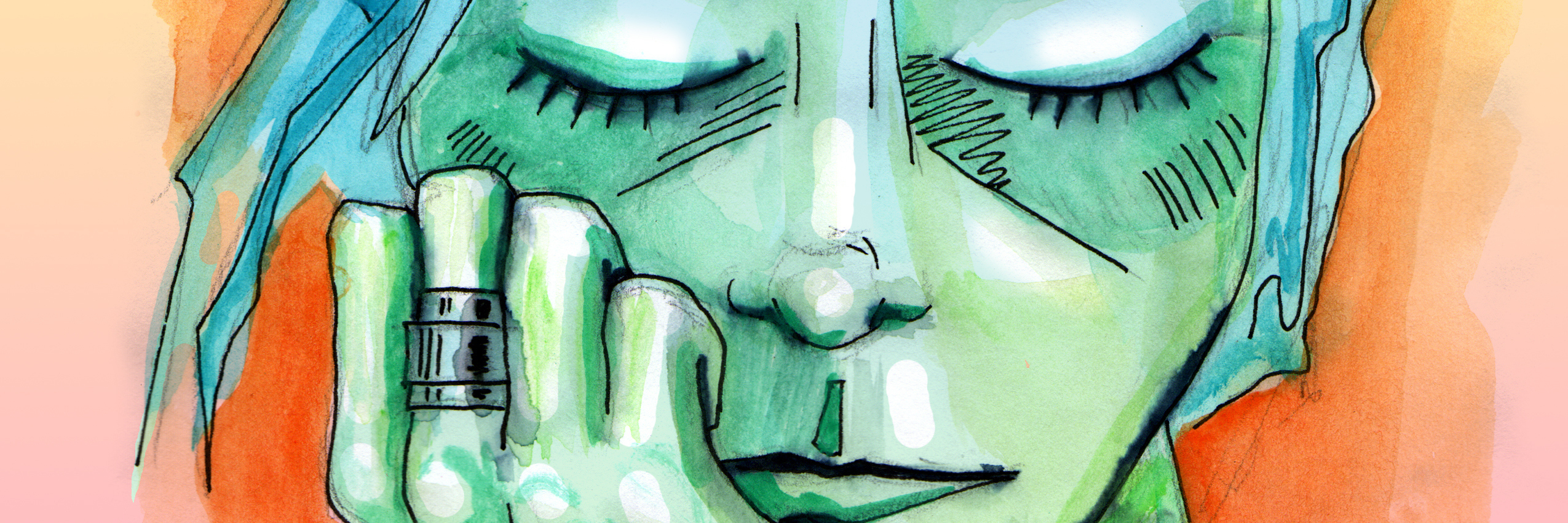Earlier this evening, a gal asked some questions for a group discussion she will be taking part of this week. It stopped me in my tracks momentarily, because quite honestly, I’ve never been asked such questions. Those of us who have traveled this journey for some years seem to be “expected” to have “gotten over it” by now.
Nope. It’s plain and simple grief, and I believe all grief is complicated.
We do move forward on this journey and it does change over time, as most things do. However, it still hurts! No one outside of grief groups asks me about my son. Or, if it’s the first time they learn I have a son who died, they ask how long ago. Once I inform them that it was 18 years ago, they immediately “move on” in the conversation, with the unspoken words of, “Oh, well if it was that long ago it’s not important.”
Nope. It’s still important to me.
The same gal asked, “What do people need to know in order to help/support the not-newly bereaved?” At first my mind went completely blank. I was taken back by the question because I don’t recall ever being asked this before, at least not in this manner. What do I need in the form of help/support? I honestly didn’t know how to respond.
When my brain began to slowly kick back into gear, I said, “I’ve been on this road 18 plus years, longer if you include my four pregnancy losses, the first 48 years ago. I want folks to know I still hurt! I still miss my babies — all of them — who they may have been, could have been. I’m older, getting closer to seeing them soon. But I have noticed something new taking place. The ‘missing’ of them is being replaced with an intense ‘longing’ for them the closer I get to seeing them again. The feeling is similar, but different. I don’t know that one is worse than the other, but different.”
She then proceeded to ask three more questions, “If you were to have the chance to ‘teach’ someone how to support you, what would you say? Would you want them to ask you occasionally how you’re doing in regards to missing your loved ones? Or would you want them to notice when you are mentioning them, and be intentional to ask questions and let you talk/share about them?
“Hmmm, lots to answer here. One — I would want them to validate my grief, not minimize, not ‘diss,’ not making me feel as if I ‘should’ be feeling differently than I do. Simply accept what is, and be a friend. Two — Yes, I would love for someone to ask. I want to know they care, to know they acknowledge the existence of my children. Three — Yes, I want to talk about my child.”
Those of us who are “not-newly bereaved” get lost in the weeds. We have lived with the heartache daily for so long that we become “accustomed” to it in variant degrees. However, we never forget.
Not a day goes by when I don’t think of my son. I still have pictures of him hanging on the wall as I do of all my children. He is still my son. He still exists. His time in this world still matters. His life still affects every member of my immediate family. He’s still my other children’s brother. His legacy lives on. I still can picture him smiling in a multitude of settings. I have no desire to have those memories gone. I neither want nor seek a “cure” to my grief. I love my son. Often, with great love comes great sorrow. I embrace the pain.
I will add what I have often told others who are newly-bereaved and fear they will never be able to come up for air. The moments of excruciating pain occur less often over time — the duration of those moments shortens — however, the intensity of the pain can remain constant. So, overall, it does get easier. We eventually do laugh again, though we can feel some unfounded guilt when we first do. We do move forward with our lives and learn to “function” again and be productive. We go on to build new relationships even though we may have to establish some boundaries in which we “pull the weeds to make room for the beautiful flowers.” We don’t leave our deceased children behind — we carry them forward with us.
My heart, and I believe the hearts of most who are not-newly bereaved, often break for those who are just beginning this journey. We have traveled the many twists and turns, peeling through the multiple layers of the onion skin, and do know some of the pitfalls. There are days I simply cannot read the great sorrow of the newly bereaved. It opens up Pandora’s Box for me and there are simply times I lack the strength to go there. It’s not that I don’t care, quite the contrary. I care too much. I know there’s no “fixes,” All I have to offer is the hope and comfort I have been given and what has brought me peace. I can help you carry your burden momentarily, but I can’t carry it for you. I believe no one can but God; the only One who truly understands grief and has the strength to carry it.
So, for us “not-newly bereaved,” we simply request acknowledgement. We still fight battles, perhaps lost a few along the way, but we have won the war. We’re still here; we have survived.
And you shall, too.
“Sometimes we need to lose the small battles in order to win the war.” ~ Author unknown.
Jude’s book, “Gifts from the Ashes,” is available at Direct Textbook.
Follow this journey on Jude’s website.
We want to hear your story. Become a Mighty contributor here.
Thinkstock image by sSplajn

